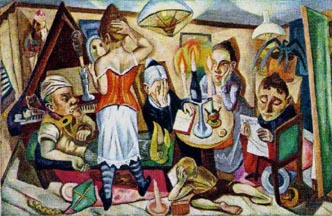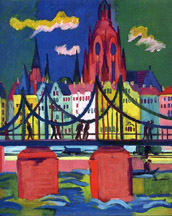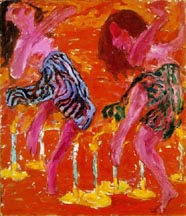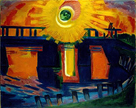A movement characterized
by the nonobjective use of symbols, stereotyped characters, etc.
that dominated the arts in Germany between about 1905 & 1925,
typified mainly by the paintings of Die Brücke & Der Blaue
Reiter. Expressonism represented a forceful reaction against late
19th-century naturalism & realism & was anticipated to some
extent by van Gogh, Gauguin & Munch. In a self-conscious spirit
of rebellion the Expressionists insisted on the validity of their
emotional responses to their subject, from which they developed the
concept that genuine artistic form results from inner necessity only & that
it can never be imposed by tradition or convention. Their means of
expression included distortion, agressively stylized forms, violent & evocative
color combinations, & the eclectic absorption of such diverse
influences as medieval, folk & tribal art. |
 Max Beckmann German (1884-1950) |
 Ernst Ludwig Kirchner German (1880-1938) |
 Emile Nolde German (1867-1956) |
Oskar Kokoschka Austrian (1886-1980) |
